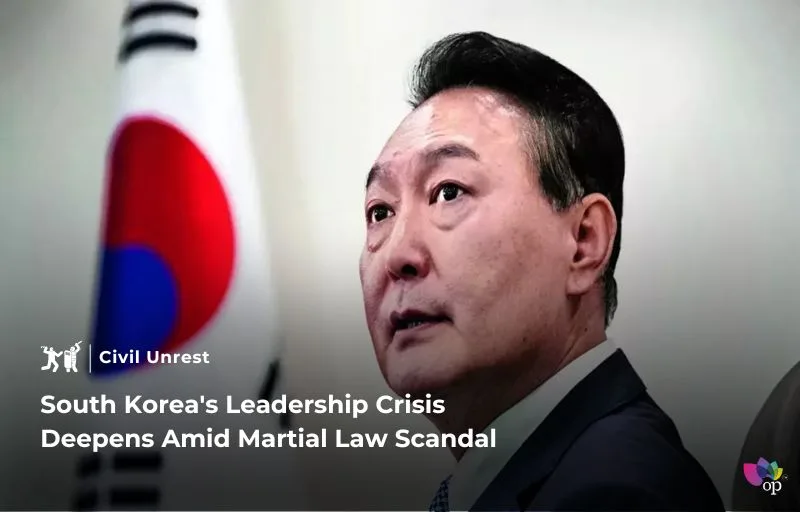According to the reports on Sunday (8 December), South Korea’s political crisis deepened following a failed attempt by President Yoon Suk Yeol to impose martial law, which led to his criminal investigation. Yoon survived an impeachment vote in the opposition-led parliament, but his party stated that he would be excluded from duties before ultimately stepping down. The crisis stemmed from his decision to grant emergency powers to the military to suppress opposition, which was rescinded after heavy backlash from parliament and the public.
In response to the situation, there were widespread protests across the country, with many calling for Yoon’s impeachment, arrest, and the disbandment of his ruling People Power Party. The protests were fueled by the belief that Yoon had violated the constitution and attempted to centralize power unconstitutionally. Opposition lawmakers have accused the president of mobilizing military forces to block a vote against the martial law decree, further intensifying the political turmoil.
Yoon’s former defense minister, Kim Yong-hyun, who played a central role in the martial law attempt, was arrested and charged with insurrection. Prosecutors have formally named Yoon as a subject of investigation, alongside Kim and other officials involved in the decree. Opposition parties have demanded immediate action against the implicated figures, including stripping Yoon of his military control and authority over the government.
The political instability in South Korea has raised concerns about its reputation and ability to manage key national security issues, especially in the face of increasing tensions with North Korea. Analysts warn that the situation could undermine efforts to deter North Korea’s nuclear ambitions and damage South Korea’s standing as a democratic nation in the region. Military leaders have expressed disappointment, and the public remains anxious about the future of the country’s leadership.
References



Comments 1